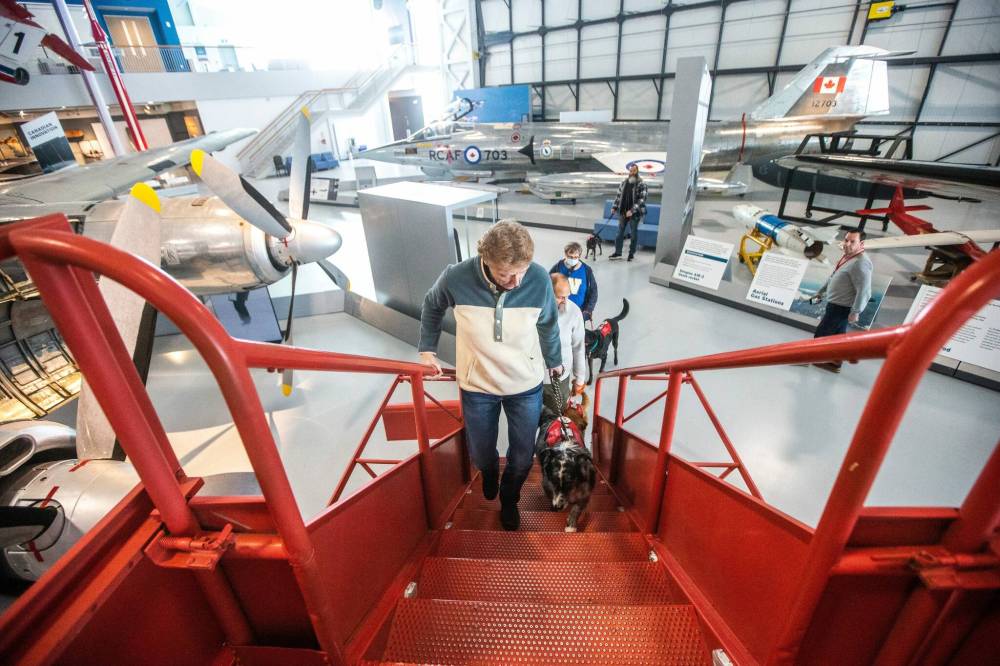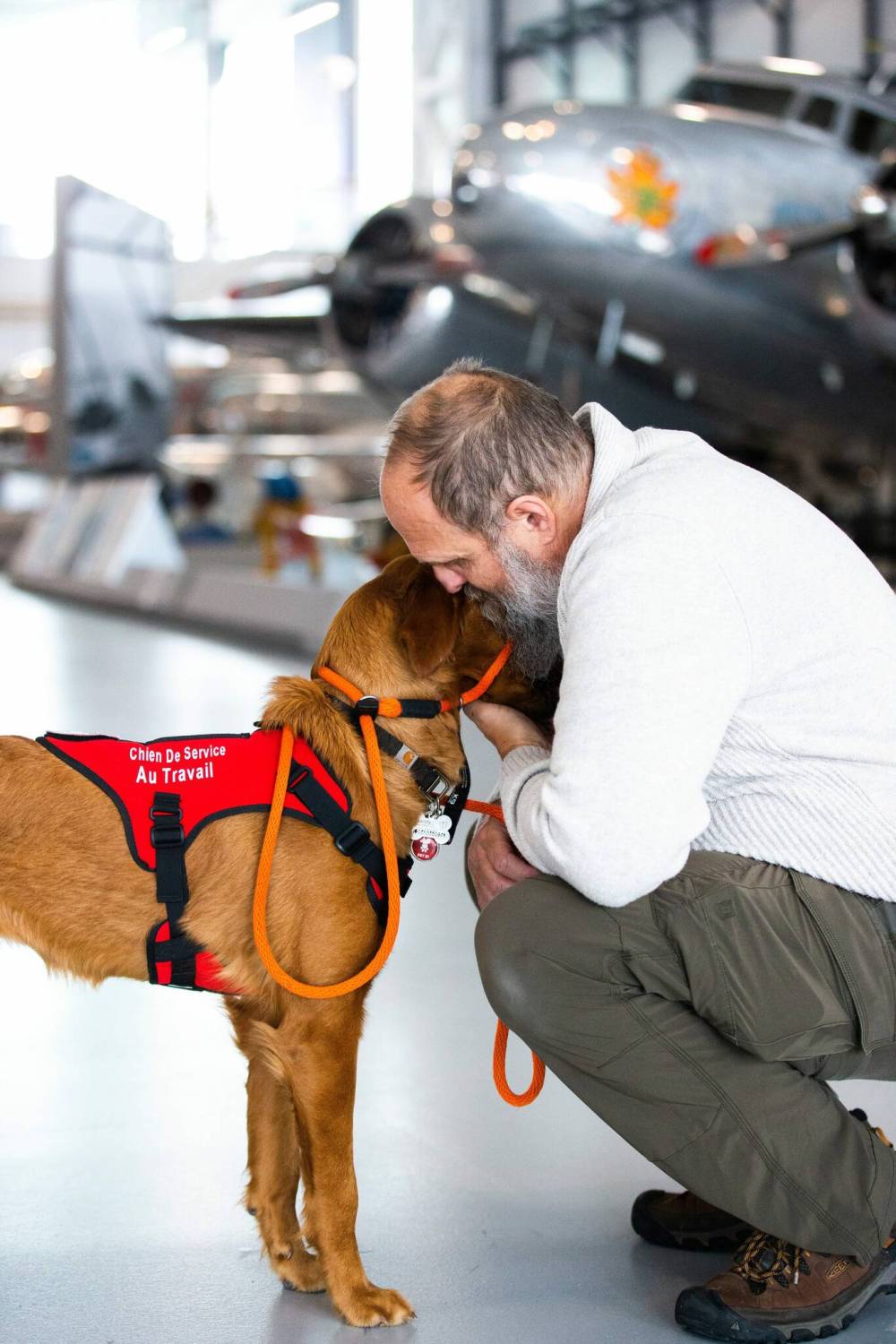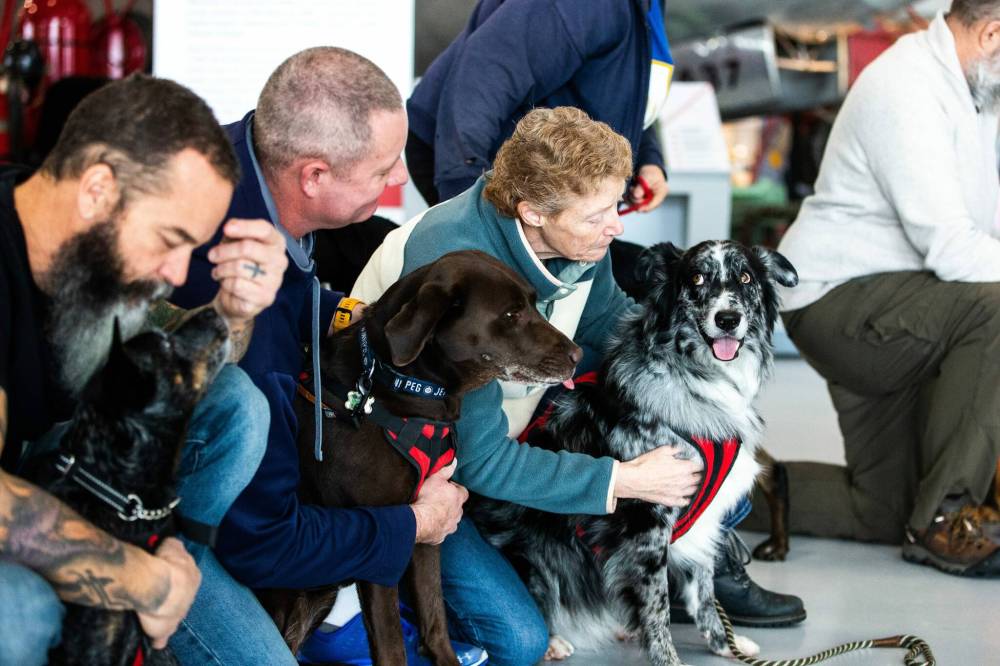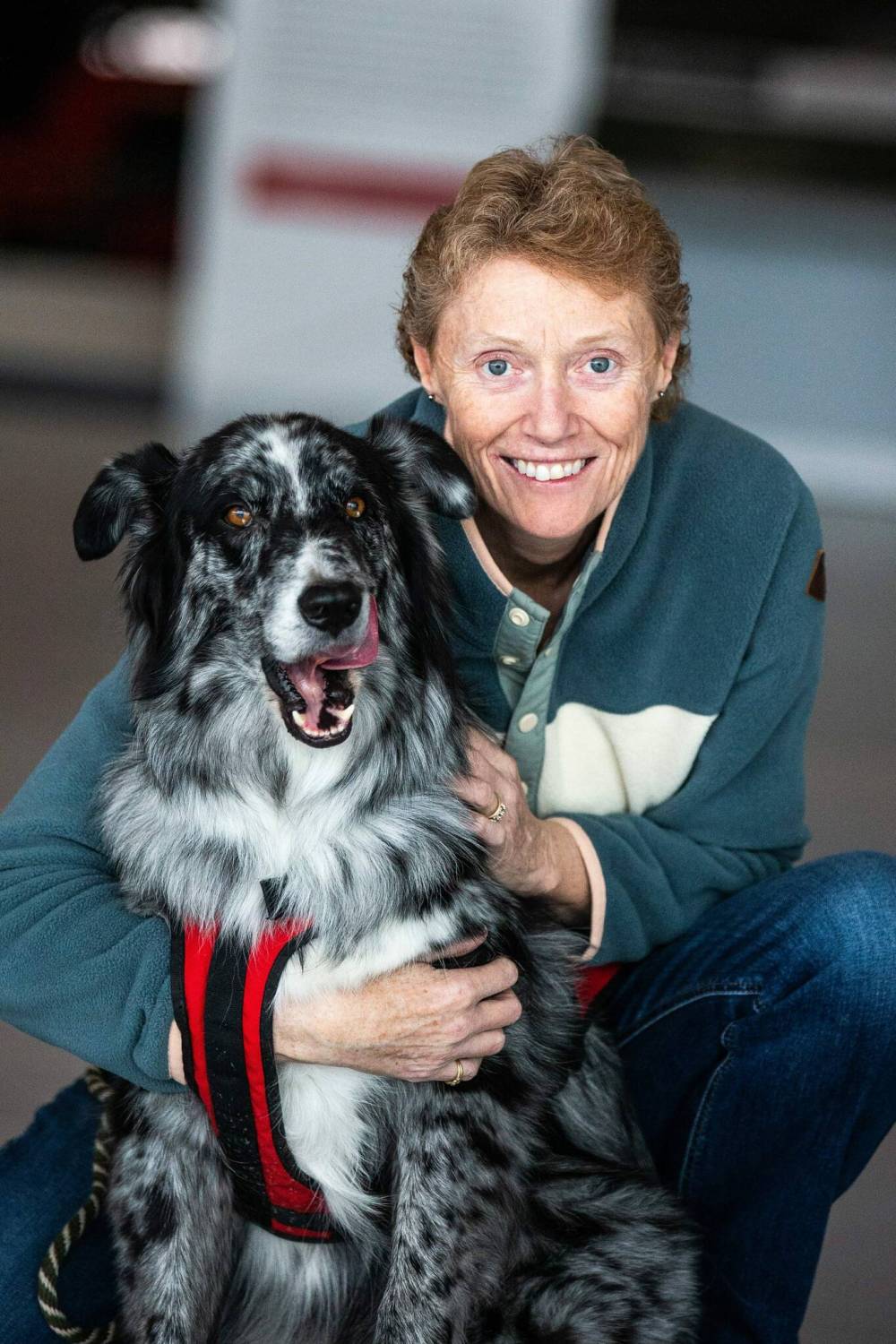Paw-sitive outcomes
Man’s best friend a lifesaver for veterans with PTSD, depression, anxiety
Advertisement
Read this article for free:
or
Already have an account? Log in here »
To continue reading, please subscribe:
Monthly Digital Subscription
$19 $0 for the first 4 weeks*
- Enjoy unlimited reading on winnipegfreepress.com
- Read the E-Edition, our digital replica newspaper
- Access News Break, our award-winning app
- Play interactive puzzles
*No charge for 4 weeks then billed as $19 every four weeks (new subscribers and qualified returning subscribers only). Cancel anytime.
Read unlimited articles for free today:
or
Already have an account? Log in here »
Hey there, time traveller!
This article was published 17/11/2022 (672 days ago), so information in it may no longer be current.
Mark Vandersteen’s battlefield injury isn’t the kind that can be fixed with a bandage, a tourniquet or a surgeon’s scalpel — but it can be helped by the love of a dog.
Vandersteen, who served nine years with the Canadian Armed Forces, has been diagnosed with post-traumatic stress disorder, a major depressive disorder and tinnitus.
On Wednesday, he joined a handful of other PTSD-affected veterans who were walking their therapy dogs in a training session around vintage aircraft in the large space inside the Royal Aviation Museum.

MIKAELA MACKENZIE / WINNIPEG FREE PRESS
Kelly Russell, founder of K9RR Service Dog Academy, leads a group of veterans and their therapy dogs around the Royal Aviation Museum of Western Canada.The dogs must get used to all manner of sounds and distractions. The cavernous museum, with its large planes ‘was a great training exercise for them,’ says Russell.
“It went very well,” Vandersteen said shortly after the session finished, accompanied by his therapy animal Shadow, an Australian cattle dog.
“My girl is needing socialization — I live by myself,” Vandersteen said. “It was good, and there was even a group of school kids there. I think they liked to see the dogs there.”
To an outsider the procession would have looked simply like a group of dog owners taking their pets for a walk inside the museum, but K9RR Service Dog Academy founder Kelly Russell said it was really part of the veterans’ therapy process, each working to ensure their dog is helping them while surrounded by other animals, people and other, unfamiliar sights and sounds.
“The shape of the hangar makes sound echo differently to the dog’s ears, which is fantastic for their nerves and ability to concentrate on their handlers,” Russell said.
“As well, the large aircraft make for perfect different shapes and figures used as distractions.”
Russell is well-acquainted with the value of a therapeutic dog for a former soldier or police officer.
She spent 32 years with the Canadian Forces and, before that, three years with the army reserve at CFB Borden in Ontario. Russell spent a dozen years with the army before moving to the air force.
In a 2017 Free Press story about PTSD, she said her difficulties grew, cumulatively, out of her military experiences.

MIKAELA MACKENZIE / WINNIPEG FREE PRESS
Veteran Paul De Groot and Brandy take a moment during training at the Royal Aviation Museum.
“You get very good at shutting your emotions off, but then you end up getting PTSD and your emotions all come back at once and you don’t know how to turn them off anymore,” she said at the time.
The condition identified as post-traumatic stress disorder in 1980 by the American Psychiatric Association was known by several different names before that: soldier’s heart, shell shock, battle fatigue and post-Vietnam syndrome.
Russell said Spot, the Australian shepherd therapy partner she got in 2015, has helped her immensely, knowing when she needs contact to divert her attention from what she might be feeling.
Brent Phillips, the museum’s vice-president for marketing, communications and strategic relations, said it was uplifting to see the veterans working with their dogs.
“It is a different setting for them,” Phillips said. “The dogs were on high alert. When the sound of an aircraft going over the building was heard their ears all perked up. I think it was a great training exercise for them.”
Vandersteen, who is president of Veterans Alliance of Canada, an organization that helps veterans obtain prescriptions for medical cannabis, said it was also great for the group to have had another training session earlier in the week nearby at Winnipeg Richardson Airport, where they and the dogs made their way through security and to the gate area where they would be boarding an aircraft.
“I have a lot of anxiety,” he said. “That’s why it was great to go to the airport, (have them) screen us and let us go through security without a boarding pass. It will help when I get on a plane with Shadow.”

MIKAELA MACKENZIE / WINNIPEG FREE PRESS
Veterans and their dogs at the Royal Aviation Museum of Western Canada in Winnipeg on Wednesday.
Vandersteen was a member of the Canadian Armed Forces for nine years; he received a voluntary release in 1997.
During his service, he spent weeks at the firing range, leading to his tinnitus. Then, in 1995, he served on a peacekeeping mission with the United Nations at the Golan Heights, between Israel and Syria.
The PTSD symptoms appeared years after he left the Forces.
Vandersteen said he received assistance over the years, but Shadow has provided the most effective therapy. It took some time before that match was made two years ago.
He said the breed’s name makes clear the dogs’ instinct and activity level — herding cattle — is not really a quality that would seem suited to helping someone with trauma issues.
Therapy dogs come in all shapes and sizes, but he chose an Australian cattle dog because he wanted a working-dog breed for its size, intelligence and loyalty.
It didn’t take long for him to recognize the benefits of his partnership with his four-legged therapist.

MIKAELA MACKENZIE / WINNIPEG FREE PRESS
Kelly Russell, founder of K9RR Service Dog Academy and Spot, who is on guard for when Russell needs attention or diversion.
“The impact is really invaluable,” he said. “I have a lot of anxiety… and I suffer from a major depressive disorder with a debilitating tinnitus, which causes my depression.
“There are days I don’t care about me, but I care about her. She is an active dog and always wants to be doing something. She gets me going.
“I don’t know if I would be here without Shadow.”
kevin.rollason@freepress.mb.ca

Kevin Rollason
Reporter
Kevin Rollason is one of the more versatile reporters at the Winnipeg Free Press. Whether it is covering city hall, the law courts, or general reporting, Rollason can be counted on to not only answer the 5 Ws — Who, What, When, Where and Why — but to do it in an interesting and accessible way for readers.
Our newsroom depends on a growing audience of readers to power our journalism. If you are not a paid reader, please consider becoming a subscriber.
Our newsroom depends on its audience of readers to power our journalism. Thank you for your support.






